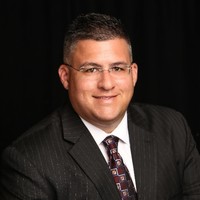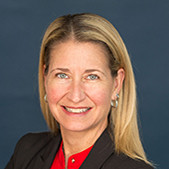You have definitely heard the advice that you’d better have an emergency fund to pay for unexpected expenses thus protecting yourself from unanticipated events. Money philosophies may differ, but most financial experts agree that for a healthy financial plan it’s necessary to have some cash set aside for emergencies.
We are sure that guessing is not the best way for making financial decisions. So we decided to ask financial experts what would they answer to a person asking “How much money should I have saved in an emergency fund?” And we’ve got a bunch of great tips we can now share with you.
 Shane Robson-Smith
Shane Robson-Smith Michelle Buonincontri
Michelle Buonincontri Bethany
BethanyMcCamish
 Sarah L.
Sarah L. Carlson
 Chris
ChrisChen
 Zhikun
ZhikunLiu
 Catherine
CatherineValega
 Kristin C.
Kristin C. Sullivan
 Niv
Niv Persaud
But this roundup won’t be sufficient enough if it doesn’t explain the basics. So, let’s start with the definition of the emergency fund.
What is an emergency fund?
It is an easily available savings account intended to help one manage future mishaps and/or unexpected expenses such as the job loss, a debilitating illness, or a major car or home repair.
What are the different types of emergency funds? Experts claim that there are several categories and examples of an emergency fund that we should prepare for. To cut it short, having an emergency fund means you have stashed away enough money to cover all the unforeseen expenditures and sudden events.
You can’t predict what next stressful situation might happen but getting ready for the following emergencies may save you a lot of cash in the long run:
- Home renovation projects;
- Auto repairs;
- Job loss;
- Medical emergency/procedures;
- Moving costs;
- Unforeseen travel;
- Family emergency.
In this article, you are going to get expert thoughts and professional advice on many of the widespread questions connected with personal finances, money savings, as well as an emergency fund for particular reasons. The experts will answer common questions and offer relevant recommendations for people of all ages.
- How is an emergency fund similar to and different from a savings fund?
- How much is an emergency fund?
- How to save an emergency fund when money is tight?
- How much is the recommended amount to have in an emergency fund?
- How important is an emergency fund?
Professional Advice on Emergency Fund Creating

Shane Robson-Smith, CPFC
Founder of Workplace Money Coach, Inc
One of the very best things you can do to protect your family and keep your money management machine running smoothly is to always have some cash set aside for unexpected expenses that pop up. When you have savings earmarked specifically for emergencies, you can weather the inevitable financial storms that we all will live through, be it a car repair, ER visit, air-conditioning maintenance in the middle of summer or the unexpected need to travel to help out family.
Commit to stashing away some cash in and Emergency Fund and do it quickly with tips below.
Five Simple Saving Strategies
- Deposit your tax return directly into your Emergency Fund savings account.
- Find three expenditures in your monthly budget to cut out and reallocate that money toward your savings.
- Empty out your garage, storage unit and closets and sell stuff you don’t use for quick profits.
- Find a part-time job after hours and on weekends and automatically deposit the extra income directly into your Emergency Fund.
- Use a portion of that extra paycheck that comes a couple of times each year to add to your savings.

Michelle Buonincontri, CFP®, CDFA™
Financial Coach of New Direction Financial Strategies & Being Mindful in Divorce
Unfortunately it is in times of crisis that most of us learn, so let’s try to see the opportunity created by the Covid-19 potential obstacles including medical costs and income loss.
Now’s the time to create or revisit that spending plan. Identify and cancel all non-essential expenses – such as gym memberships, Spodify, Pandora, Audible, gaming, put car insurance policies for 2nd vehicles/motorcycles in ”storage” status, even call creditors to reduce interest rates now that the Fed reduced interest rates again in early March.
This may even be a good time to consider a mortgage refinance if rates are lower, you have the extra cash for closing fees, and will be in your home long enough to recoup those closing fees against the lower interest rate.
An emergency fund of 3-6 months for non-discretionary or essential expenses is a great starting point. Folks may consider moving back to minimum credit card payments or reducing retirement savings to instead save those amounts and help build that cushion right now.

Bethany McCamish
Owner of His and Her FI Blog
The amount you put into your emergency fund depends on where you’re at with other financial goals.
It’s always a good idea to have at least $1000 put aside. Once this is done you can build the emergency fund up alongside your other goals.
While my partner and I pay off my student loan debt, we are only putting another $200-$300 a month towards the emergency fund. We both contribute to our retirement plans as well.
Your emergency fund is important for peace of mind, but so are your other goals. Student debt needs to be paid off so we can have more control over our money.
The emergency fund takes care of your short term future self, while your retirement (investments) take care of your long term future self. This is why we pursue all of these goals at the same time. It’s a well-rounded approach to the emergency fund.

Sarah L. Carlson, CFP®
Financial Advisor at Fulcrum Financial Group
Is creating an emergency fund a high priority to you, but you aren’t sure where you can afford to save even more in 2024? If you are looking to save more, it might seem impossible if you aren’t sure where you can squeeze out any spare cash.
The trick to saving is to be more conscientious about where your money is going in the first place.
Saving truly begins with your mindset. Don’t think of saving as restrictive or not fun – it doesn’t mean you have to quit spending altogether. It just means you are placing a higher priority over your long-term financial well-being over what you want right now.
Emergency Fund Tips From Sarah L. Carlson
- Find out where your money is going. Break down your expenses into two categories: necessary “have to haves” (mortgage payments, utilities, and healthcare) and discretionary “want to haves” (new clothes, vacations, etc.). This will help you see clearly where you can make changes; most people have to pull back on their discretionary spending to get back on track financially.
- Pay with cash. Sticking to a budget is much easier when paying with cash, as it is that much more tangible. In fact, studies have shown that paying in cash versus plastic reduces spending by 20-30%.
- Setup automatic transfers. It seems obvious, but “out of sight, out of mind” can apply to many things, including your emergency fund budget. Pick an amount – say, 10% – and have it automatically transferred from each paycheck to a savings account. In six months, if you haven’t missed it, increase the amount. Keep doing this and systematically you will grow your emergency fund substantially.
By paying more attention to what you are pulling your credit card out for each day, you will begin to notice patterns ways you can potentially use to save even more. You are worth knowing what you are spending, so quit blinding spending without a thought. By investing in yourself, you are creating the foundation for a stress-free retirement, which is something that money truly can’t buy.

Sallie Mullins Thompson
CPA/PFS, CFP, CDFA, MBA
For 1-wage earner households, the fund should hold money for at least 6 months of mandatory expenses – for 2-wage earner families, 3 months is the minimum.
It should be totally liquid which means in a bank checking or savings account.
It should never be used for anything else. If it dips below, then it should be replenished as quickly as possible.
This is a #1 priority for everyone to have in place – before other savings, even 401Ks with a match.

Jay Spector, CFP®
Partner – Wealth Advisor at Barton Spector Wealth Strategies
We are living through unprecedented times. Most investors haven’t experienced market situations like this.
We are talking with clients and are helping them keep the current situation in perspective. It is important in times like this to get a fresh look at your investment plan and your other financial plans, including insurance (life, long-term care, disability and health) as well as any business-related insurance clients may have.
In addition, it is also important to make sure you have your emergency fund – or your financial cushion – in place.
In our opinion, an emergency fund should be at a level to comfortably cover six to nine months of household expenses (mortgage/rent, food, gas, insurance and other expenses). Some people like to have their emergency fund in readily accessible cash, a line of credit or both.
To us, it is important to have something!
We have seen clients segregate these cash funds into separate accounts or even using a separate financial institution in order to avoid the temptation of dipping into the funds for things other than a financial emergency or unexpected expense.
Bottom line: It is essential that people have access to funds in an emergent situation. Having an emergency fund or cash reserve established for you and your family can make or break your financial life. A financial emergency can be a speed bump, or it can be a financial tsunami if you are not prepared. An emergency fund can soften the blow and help you deal with life’s unexpected curveballs (unemployment, unexpected expenses, etc…).

Rob Greenman
Lead Advisor, Partner, CFP®
Six months is a div that commonly is used for emergency funds.
Another consideration is where to park these funds and/or account types that should be utilized.
Health savings accounts can sometimes be a wonderful “emergency fund” savings vehicle. The strategy here would be to max out your HSA, have funds carved aside and growing tax free. The individual wouldn’t use this funds to cover medical expenses, instead paying out of pocket. Medical receipts and expenses could be tracked and saved along the way. Then, if a rainy day comes, the individual could pull funds out tax-free up to the amount of medical expenses that had been tracked/incurred along the way.
This can be a wonderful forced savings vehicle that combos as a potential rainy day fund.

Angela Giboney, CFP®
Certified Financial Planner TM professional
If one income family, you should save one month of expenses for every $10,000 of annual income. 2 income families can reduce that by a factor of 25 percent.
This may seem overwhelming so starting by focusing on three months of expenses is terrific and this will be sufficient for many scenarios. Once you have the three months in place, continue saving while working on other goals until you reach 1 month of expenses for every $10k in annual salary.

Chris Chen, CFP®, CDFA™
CEO / Wealth Stategist at Insight Financial Strategists LLC
Emergency Funds are academic until they are not!
So many people are going to see their incomes cut over the next weeks and months. This is when it pays to have planned.
For most people, we recommend 3-6 months of expenses.
When the crisis is over, it will be time to rebuild.

Zhikun Liu, Ph.D., CFP®
Retirement Financial Planning Research Director at Empower Retirement™
When it comes to the emergency fund, the following questions may help us to organize our thoughts and better understand this topic:
Why Do I Need to Save for an Emergency Fund? What Is or Is Not an Emergency Fund?
In my opinion, an emergency fund is for unexpected hardships (medical emergencies, car/house breakdowns that are outside of insurance coverage, etc.). It is not the fund we save for our next vacation, or for a big item purchase…
The emergency fund should be the money we set aside for life’s unexpected events.
How Much Should I Save for an Emergency Fund?
There are lots of “rules of thumbs” for the amount of the emergency fund we should save.
For instance, some people calculate the emergency fund from an absolute dollar amount perspective: We should save from $3,000 to $30,000 depending on the family size, loans, expenses, etc.
Others advise the emergency fund amount from the time period point of view: You should save enough money to cover your family’s non-discretionary spending for 3-6 months.
I tend to agree with the latter.
Emergency funds should be set aside to withstand unexpected financial shocks (such as the income loss caused by the COVID-19 quarantine this spring). Therefore, we may need to prepare our emergency fund to cover some of the worst-case scenarios.
A total income loss for 3 to 6 months is a good example for this type of scenarios. However, the calculations to determine the amount needed to cover the total income loss is a little more complicated than just multiply our monthly salary by 3 times.
We need to take the following factors into considerations:
- Discretionary vs. non-discretionary spending. The non-discretionary expense includes the debt we have to pay every month, our essential living expenses such as food and utilities, etc. Each family should be able to look at their cash-flow statements and div out what their average monthly non-discretionary spending amounts to be. WE can usually achieve this by taking out the discretionary spending from our monthly cashflow and see how much money we have to spend on essential items every month.
- Minus insurance coverages. Most of the catastrophic losses can be covered with insurance. Therefore, the emergency fund should not have to cover the amount that our insurance companies will compensate. However, there is a caveat: Since some insurance policies have deductibles or delayed payments, emergency funds should be able to take care of the liquidity needs before the insurance payments roll in. In other words, an essential function of an emergency fund is to be the most liquid source of assets that a household could tap into when unexpected life events happen. (Therefore, when we subtract the insurance coverage from the emergency fund target, we need to add back the deductibles and any insurance coverage that takes a long time to collect the compensations.)
Where Should I Park My Emergency Fund?
Since liquidity is just as important as the quantity when it comes to the emergency fund, we need to pay special attention to the investment vehicles which we use to store the fund.
The most common vehicles include checking, savings, and other money market accounts. However, we can think outside the box and use low interest and highly liquid lines of credits as complementary sources for the emergency fund.
For instance, assume a household is preapproved for a nonrecourse loan of 3% interest with a $10,000 borrowing limit, and they can take out the loan any time they want with little to no delays. Then they can use this line of credit to cover a portion of their emergency fund target up to $10,000.
In other words, instead of keeping $10,000 in their checking account, they can use this $10,000 loan credit to cover their emergency fund needs and invest the $10,000 elsewhere, if the investment return is more than 3%.
This kind of line of credits includes but is not limited to home equity line of credit (HELOC), low-interest nonrecourse loans from your banks, certain types of cash value life insurance policy, reverse mortgage, etc.
Using different types of line of credit wisely can help us to free up the cash we have to hold in the checking or savings account and seek more investment opportunities while getting our emergency fund needs covered.
In summary, an emergency fund should be held in liquid accounts, and should cover the household’s non-discretionary expenses for 3 to 6 months.
The amount of emergency fund which we have to keep in the checking account (or other liquid accounts) can be subtracted by two numbers. The first one is the insurance coverage minus deductibles. The second one is low-interest high-liquidity lines of credits.

Catherine Valega, CFP®
Wealth Consultant
Emergency savings. I’ve never been supportive of the very low estimates of needing 3-6 months expenses saved.
I encourage my clients to have 12-18 months of expenses saved. This is particularly necessary when entering into a recession, which is quite possible, if not probable.
I also believe in encouraging ‘side hustles’ – there are a lot of ways to make supplemental income via businesses supported virtually (ie, marketing, writing, coding, etc).

Kristin C. Sullivan, CFP®
Sullivan Financial Planning, LLC
The right emergency fund amount depends on your situation. If you have a partner sharing household expenses, 3 months’ essential bills is a good amount. If you are single and have a fairly reliable job, 6 months essential expenses is a safe target. If you are the family breadwinner and about to start your own business and quit your job, 12 months’ would be a smart cash cushion.

Niv Persaud, CFP®, CDFA®, RICP®
CRPC®, Managing Director at Transition Planning & Guidance, LLC
I prefer using “reserve” instead of “fund” because it is money not used for immediate needs but for future use if there is an emergency.
What is an emergency reserve?
The purpose of an emergency reserve is to cover any expenses that result from an unexpected event that impacts you financially.
These unexpected events could be damage to your home or property due to Mother Nature, an accident or unexpected maintenance.
It could be a critical medical diagnosis that increases your health care expenses. And, it could be from losing your job.
While you may have insurance for some events, there are deductibles and copays to pay. Also, some insurance companies may take several weeks to send you a check.
How much money should be in my emergency reserve?
When determining how much money you need in your emergency reserve, think about how long it would take you to find a new job. Historically, it was recommended for emergency reserves to be at least 3 months of expenses for dual-income households and 6 months of expenses for single-income households.
Times are different and having 3- to 6-months of expenses in your emergency reserve may not be enough if you no longer have a job. It may be realistic to target 9 months of expenses for dual-income households and 12 months of expenses for single income households.
Keep in mind, the more money you make, the longer your job search process becomes – especially if you’re managing people and a P&L. Also, if there is an economic downturn, it will take longer to find a new job.
When calculating the amount of your monthly expenses, focus on essential expenses. This category includes your rent or mortgage, utilities, food, and other expenses you are required to pay.
Should my emergency reserve be cash?
You’ve probably heard you need to keep your emergency reserve in cash, but don’t take that advice literally. The objective is to have quick access to your money in the event of an emergency.
Saving your money in cash equivalents such as a money market account may be acceptable to meet your objective. The more money you accumulate in your emergency reserve – for example $100,000 – you may want to consider using mutual funds which can easily be liquidated in 3 business days.
The bottom line is your emergency reserve should be easy for you to access in an emergency. And remember, when you use your emergency reserve you’ll need to replenish it for the next emergency.
Summing Up
Don’t mix emergency fund with your savings. These two notions are completely different although they are both about your money. Having a savings account means you set aside some funds for planned things such as buying a new auto, a house or going to college.
Having an emergency fund means you set aside some funds for completely unpredicted situations in life such as house repairs, etc. Hence, it’s important to establish an emergency fund as well so that it gives you more financial stability and freedom especially when you urgently need a safety net.
How is an emergency fund similar to and different from a savings fund?
Some people consider an emergency fund and a savings fund to be similar things. However, experts claim that these two funds have a different aim and thus should be treated in a different way.
- A savings fund is when you set aside some funds for planned things such as purchasing a new car, a house or going to college.
- An emergency fund is when you set aside some funds for completely unpredicted situations in life such as house repairs, etc. Hence, it’s important to establish an emergency fund as well so that it gives you more financial stability and freedom especially when you urgently need a safety net.
How much is an emergency fund?
It’s necessary to set some cash aside each month until you have a decent amount in your emergency fund. What is this sum? It may differ among people but financial experts believe you should set aside cash for at least three to six months so that you are protected if something goes wrong and can utilize your own money until the situation stabilizes. For some people, having $1,000 in an emergency fund is enough while others may save a larger amount.
Everything depends on your current employment and your monthly income. The more you save the better as you will be able to remain financially afloat even when you become temporarily unemployed.
How to save an emergency fund when money is tight?
When your monthly budget is rather tight, you may have doubts about whether you will be able to establish an emergency fund for urgent needs.
However, there is nothing impossible if you are dedicated to making regular savings that you will be able to adjust in the future. These 4 tips may help you save more even with a tight budget:
- Check your budget. Firstly, it’s important to review your monthly budget and search the spending categories that might be omitted. Think about cutting certain expenses especially those connected with eating out or entertainment.
- Establish automatic transfers. If you get your monthly paycheck via direct deposit, you may set up automatic transfers of a portion of your income into an emergency fund. You can start by making small monthly transfers and slowly work your way towards saving more each month.
- Have a change jar. It may sound funny but this tactic really works especially for those whose budget is tight. You should save all the change you find in your pockets or purse and put it in a special jar. Once a year you can add the sum you’ve saved to your emergency fund.
- Your money should be in access. Make sure you can easily withdraw the cash from your emergency fund when you really need it without paying fees. Having your money in quick access is essential but withdraw it only in case of a real emergency.
How much is the recommended amount to have in an emergency fund?
There is no recommended amount as every person is different. You should consider your own financial situation and employment. If you have a decent monthly income you can allocate more money into your emergency fund.
Those who have a part-time job may set aside a smaller amount each month. Financial coaches advise having at least three to six months’ worth of expense set aside for various disruptions. The more you save the better as you will be able to cover any unpredicted situations with no hassle.
How important is an emergency fund?
Having an emergency fund is really significant. You never know what might happen tomorrow. Having some cash set aside means you are less worried about life events and uncertainties. When you feel more protected from monetary disruptions you don’t have stress.
Establish an emergency fund so that you don’t need to ask your relatives for assistance when something goes wrong. Also, you won’t need to take out lending options and personal loans as you will have your own savings for the rainy day.
Are there any community organizations to help with emergency housing funds?
Yes, there are several organizations and grants that may be useful for people who experience certain financial issues:
- Emergency Solutions Grant (ESG) – this program is suitable for homeless people and families who can’t make ends meet or live on the street. It provides emergency shelters for such families and offers important services to homeless people to prevent them from living on the street again.
- Kansas Housing Corp – this program offers assistance for homeless people by funding their rent and housing services. It provides quick emergency rental assistance for the unemployed and those who have been affected by COVID job losses. Kansas Housing awarded $6.1 million to provide housing stability for thousands of families and prevent homelessness.
How can saving emergency funds help with personal finances?
When you set aside a certain percent of your monthly income and establish an emergency fund, you feel more protected from unforeseen life events.
When your life throws another curveball, you will feel more secure and less stressed out. Besides, saving cash can help you with personal finances. Once you have a decent emergency fund you won’t have to worry about having debt next time a shortfall occurs.
Taking out lending options is suitable only when you don’t have any cash set aside and you will need to repay more with interest. Having your emergency fund means you are financially independent and your personal finances are protected as you won’t need to take any debt.
How emergency funds help?
There are many situations when having an emergency fund may help you remain financially stable. It’s essential to have some cash set aside for the rainy day so that you don’t stress out when you suddenly run out of money and have nowhere to turn to for assistance. For instance, you may utilize extra funds for these situations:
- Emergency house/car repairs;
- Medical procedures;
- Unexpected travel costs;
- Living expenses after a job loss.
What amount do most financial experts say you should have in your emergency savings fund?
The thought on the exact amount to have in your emergency fund varies between financial coaches. They claim that everything depends on the person’s employment situation and stability.
If you are employed and have a full-time job with a regular income you may set aside a larger amount than those who have only a part-time position or live on welfare benefits. This way, you should analyze your own situation and consider the amount you can set aside, without doubt, each month.
Making consistent investments in your emergency fund will help you maintain a decent amount of extra funds for unforeseen events. It’s common to have about three to six months’ worth of living costs in your emergency fund to cover any unpredicted situations.
How much do experts say you should have in an emergency fund?
The more you have in your emergency fund the better for your future financial stability. Nowadays, thousands of people have already seen the difference between having some cash set aside living from paycheck to paycheck.
Modern life and situations that happen all of a sudden have left many people unprepared. If you were laid off and lost your job for some time you know how challenging it can be to remain financially afloat.
In order to avoid difficulties with unpredicted events and costs you should have enough cash to cover expenses for about three to six months.
What do financial experts recommend property owners keep as an emergency fund?
Only about 40% of Americans can easily cover emergency costs. The rest of them might have serious issues with covering urgent expenses. If you rent an apartment or a house you should have more cash set aside compared to property owners.
Experts believe the minimum threshold should start from $1,000. Everything depends on your particular situation and employment stability.
For instance, if you have $6,000 in your emergency fund while your monthly costs total $4,000 per month, you will only have 1.5 months’ worth of living expenses in your savings.
How having an emergency fund on hand can help lower insurance?
Insurance has to do a lot with managing your personal finance. It works hand in hand with your emergency fund to help you cover unforeseen events that might happen. Similar to your emergency fund, having insurance means you can be protected from unwanted stress and soften any situation that wasn’t planned.
There are many types of insurance: life insurance, disability insurance, auto insurance, health insurance, homeowners insurance, etc. Depending on your needs you may select one or several types and have coverage in case of an emergency.
If you have a decent emergency fund you may lower insurance as you will have enough funds to cover certain expenses from your own pocket.

 Sallie Mullins Thompson
Sallie Mullins Thompson
 Rob
Rob Angela
Angela